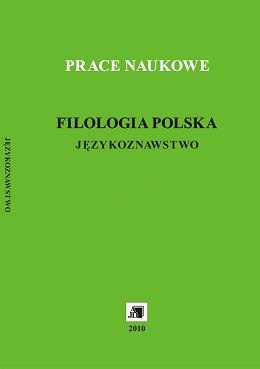Slovak grammaticalized modal verbs from the perspective of traditional and cognitive linguistics
Slovak grammaticalized modal verbs from the perspective of traditional and cognitive linguistics
Author(s): Katarína DudováSubject(s): Language studies, Semiotics / Semiology, Morphology, Pragmatics, Cognitive linguistics
Published by: Uniwersytet Jana Długosza w Częstochowie
Keywords: grammaticalization; polysemy; cognitive linguistics; modal verbs; Slovak language;
Summary/Abstract: In the paper we are dealing with modal verbs whose development in Slovak language led to various degrees of grammaticalization. A relatively high rate of polysemy of thesegrammatical units, which originally had a full lexical meaning, is the result of this process in the semantic field. The traditional linguistic approach to polysemy of modal verbs does not show a number of meanings in their semantic relationships as well as in their original motivation. This linguistic approach addresses neither whether semantic grouping of meanings is accidental nor whether there is some mutual motivation present.Therefore we have found the approach of cognitive linguistics more appropriate. The works of cognitive linguists derive one meaning from the other relying on a specific meaning set in man´s physical experience with the world he lives in. We are able to understand the target domain, i.e. the conceptualization of modal meanings of possibility, necessity and evidentiality in Slovak via the source domain (natural category) of polysemic modal verbs.
Journal: Prace Naukowe Akademii im. Jana Długosza w Częstochowie. Językoznawstwo
- Issue Year: 2016
- Issue No: XII
- Page Range: 69-82
- Page Count: 14
- Language: English

